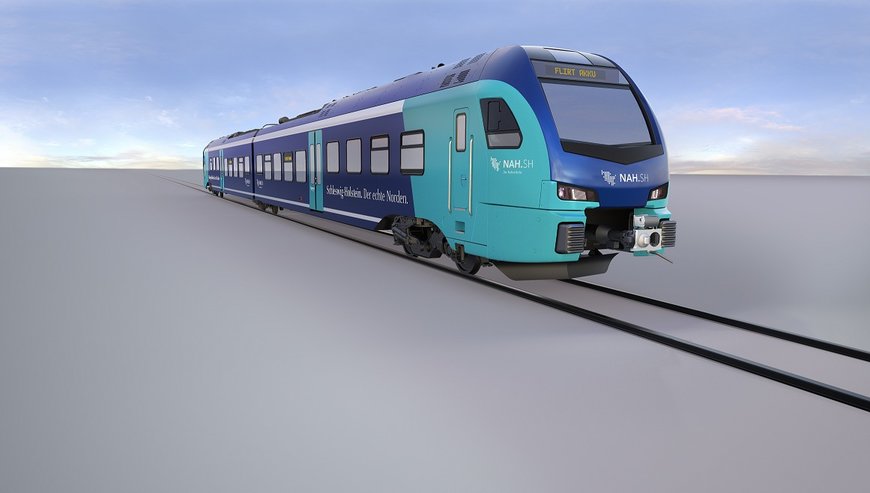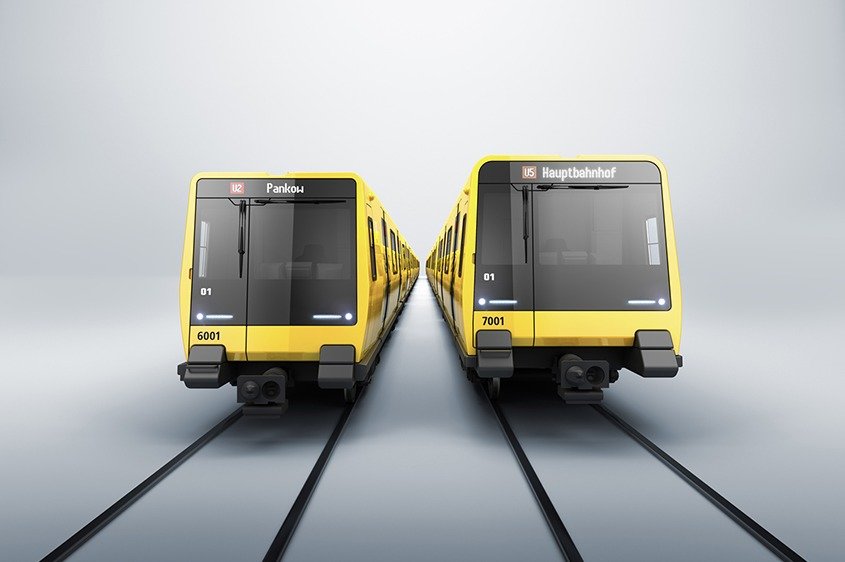railway-international.com
19
'21
Written on Modified on
ABB’s innovative energy storage systems and traction converters to power trains in Germany
ABB traction equipment to reduce rail operators’ carbon emissions and provide reliable and efficient rail transport in Berlin and Schleswig-Holstein.

ABB has won orders from Swiss-based rail vehicle manufacturer Stadler to enable energy efficient and sustainable transportation for operators Nahverkehrsverbund Schleswig-Holstein GmbH (NAH.SH) in northern Germany and Berliner Verkehrsbetriebe (BVG) in the German Capital. The scope of supply includes energy efficient traction converters and high-power lithium-ion battery based on-board energy storage systems. Financial details of the orders were not disclosed.
“We are honored to be the partner of choice for Stadler Germany and thankful for their trust in ABB’s innovative traction equipment, which is at the forefront of the transition towards more sustainable transportation,” said Edgar Keller, President of ABB’s Traction Division. “Our energy storage systems are a perfect complement to our high-efficient traction converter portfolio. We can leverage many years of accumulated expertise in the field of batteries with strong traction domain know-how and turn it into innovative solutions for our customers.”
The ABB traction converters and lithium-ion based energy storage systems will be installed on 55 new BEMUs (bi-mode electric multiple unit), which is the single largest order for BEMUs worldwide, for local transport authority NAH.SH. The battery modules will be produced in ABB’s state-of-the-art semi-automated factory in Baden, Switzerland and then combined into energy storage systems in the Traction factory in Minden, Germany.
The new trains will operate in a partially electrified network, where the longest non-electrified section stretches up to 80 km, which were hitherto served by diesel rolling stock. The use of high power and long-life energy storage systems with high inherent safety level ensures that the vehicle has the same performance in all operating modes in addition to higher safety. The traction batteries will be charged while the vehicle is operating in electrified sections and at selected locations of the route. Additionally, the energy storage system can be charged with 400V or 1,000V depot supply. ABB’s unique traction converter architecture ensures that all the operating and charging modes can be realized without the need for additional power electronic equipment than what is required for an AC electric multiple unit (EMU) train.

ABB will deliver traction converters for installation in new underground cars in Berlin. Image credit: Stadler
In the city of Berlin, the latest generation of traction converters will be installed on more than 600 new underground cars for BVG. Replacing the 30-year-old fleet with modern vehicles equipped with customized ABB technology will meet the need for more reliable and efficient service and help accommodate growing passenger numbers. ABB traction technology has already been proven very reliable in Stadler’s existing underground IK-type metro vehicles for BVG.
ABB has a long history of providing innovative and energy-efficient technologies to the rail sector, manufacturing and servicing components and sub-systems in urban, intercity and high-speed networks for rail infrastructure and rolling stock. ABB also provides life-cycle service support, including maintenance and retrofits for its large global installed base.
www.abb.com

